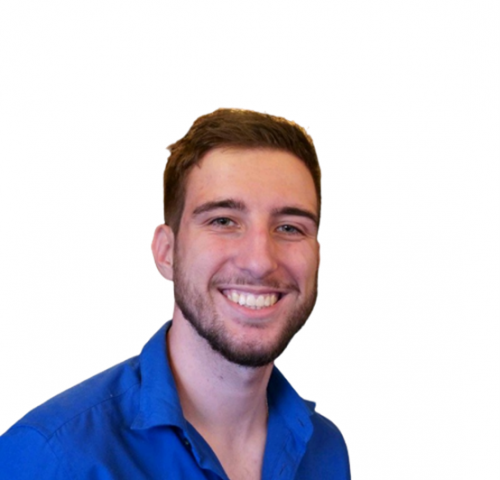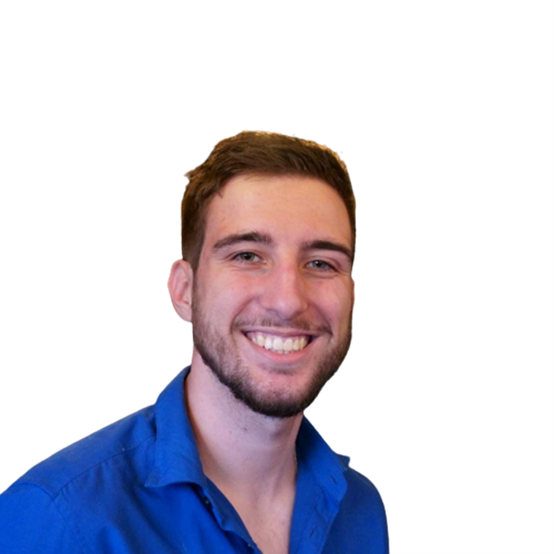
Filip Juricev-Martincev
Queensland University of Technology
I was born and grew up in Croatia (southeast Europe). Moved to Australia where I finished high school, and later completed a BMath (Stat) and BInfoTech(CSc) in 2021. Immediately after, I’ve started my PhD in statistics. My thesis is a fun mix between geography and maths, where I’m looking at the problem of optimal statistical regionalisation. I have also worked in the cadastral surveying and GIS industry as a spatial data scientist and a software developer / GIS analyst.
Can you give me a quick rundown about the type of mathematics you are studying and its potential impacts for the broader community?
One sentence summary: I look at how we draw borders, why we do it a certain way, and how can we do it better.
Whilst that was an oversimplification, it still captures the essence of my research. Oftentimes we are looking at information that we wish to analyse over a particular region (maybe crime rate in a neighbourhood) , or maybe the data we want to analyse cannot be accessed (like the Census) individually, but must be aggregated to prevent privacy breaches. My project involves determining how to aggregate this data into regions that would support unbiased statistical analysis. The impact is quite easy to see, when we make conclusions from data, of course we want it to be fair. Thus, when the Australian Bureau of Statistics (or any organisation) publishes data per region, you want to be confident that it is unbiased and true. Currently this process is manual and highly restrictive, and my project will enable the automation (either partial or complete) of this process.
How did you get into mathematics/statistics/data science? Was there someone or something that inspired you to this field?
Unfortunately, there is no inspirational story here, full of unexpected twists. I’ve always liked maths, particularly Euclidean geometry, and combinatorics. I knew maths would bring me lots of opportunities. I have also decided to do computer science as it is quite a useful skill to know how to program, and due to its close relation with maths.
You received a Travel Grant to attend AMSI Summer School 2023. How important was this in terms of your ability to attend, fully participate in the program and meet others studying in similar fields?
I am very grateful for this opportunity. Being able to meet in person a lot of likeminded people, discuss maths, and learn from great lecturers is incomparably better than being online. It was also an excellent social event.
What was the most valuable part of the program for you?
Whilst the programs were well taught and valuable, and I have indeed learnt a lot, I would still have to put emphasis on the people I have met. As a very outgoing person, being in a college environment, going to class in-person, having engaging discussions over lunch is an amazing experience.
In the long-term, what do you think are the benefits of having attended Summer School?
Firstly, since the classes are very fast paced, it encourages good time management and study habits. Most importantly, since everyone is talking about maths, you get good at explaining your research to people who may not know the area. Which is an informal way of saying – science communication. It is a really important aspect of research and academia where we often get caught up in technical details, so it seems what we are doing is extremely complex. Whilst that is the case, it is the way you present it so a wider audience can see and understand the importance of it.
Summer School included a special Careers Day program which aims to help give students an idea of the kinds of career paths available to maths graduates in industry and private sector research areas. Were you previously aware of the types of industry opportunities available to mathematical science graduates?
Although personally I am set in this area – i.e., I knew what I wanted to do with a maths degree, I can definitely see the benefits of having a Careers Day for someone who may not yet have made a decision on what they want to do. The format of this event was quite engaging, and I have learnt about all the different companies, so overall a valuable experience. Not to mention, free goodies.
What advice would you give to someone who is considering applying for Summer School in 2024? Should they apply and why?
100% YES. Especially for the in-person part. The college lifestyle may not be for everyone, but it is something you will remember. You can learn a lot from a wide range of well-taught subjects, as well as meet your fellow researches. One thing to consider – the courses are fast paced, so you must be prepared for that, if you’re taking them for credit. If you’re just there to learn without the pressure of assessment, then it makes it even better. Regardless of whether you take the Summer School as a study experience or more of a fun getaway so you can say “this one time, at math camp”, it is a worthwhile experience.
Where do you want the mathematical sciences to take you? Where do you see yourself in five, ten years’ time?
I would love to get some exciting papers published to get my name out there in the field. However, I don’t think I will stay in academia. I can see myself working in the GIS industry or software / data science role.

